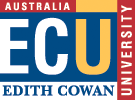COURSE INFORMATION
Disclaimer
This course information may be updated and amended immediately prior to semester. To ensure you have the correct outline, please check it again at the beginning of semester.
| B73 Bachelor of Science (Biological Sciences) | |||||||||||||||||||||||||||||||||||||||||||||||||||||||||||||||||||||||||||||||||||||||||||||||||||||||||||||||||||||||||||||||||||||||||||||||||||
BACHELOR OF SCIENCE
The School of Natural Sciences offers degree programs in the environmental and life sciences with a strong emphasis on practical learning and problem solving through laboratory and field work. Each of the School’s programs integrates a sound knowledge of the discipline with the important generic skills of effective communication, information handling and computing.
The programs in Biological Sciences and Environmental Management provide opportunities for students to complete a second major, which is designed to enhance their employment opportunities.
The Bachelor of Science (Biological Sciences) is designed for students with a strong interest in the living world. The Biological Science Major covers such areas as cellular and molecular biology, genetics and evolution, zoology, botany, ecology and environmental science. Students also enrol in a Second Major of their choice. The course prepares graduates for professional employment in research, industry, teaching, government agencies and science-based businesses.
The degree has three main components:
1. A core program of eight units completed in the first year. 2. A Major program consisting of eight units in Biological Sciences. 3. A Second Major* chosen from the list below:
Conservation Biology Environmental Chemistry** Environmental Management Land Management Management of Aquatic Systems
* With permission of the course coordinator an eight-unit Supporting Major from a course offered by another school may be selected instead of a recommended Second Major.
** Students who choose Environmental Chemistry as their second major, will need to complete in their first year EITHER SCC1111 General Chemistry unit, OR SCC1123 Chemistry for the Life Sciences AND SCC1226 Introduction to Organic Chemistry and Biochemistry units. For the latter option, students will need tosee their respective Course Coordinator.
COURSE LOCATION AND MODE OF STUDY The course is available by full-time or part-time study on the Joondalup campus.
COURSE STRUCTURE |
|||||||||||||||||||||||||||||||||||||||||||||||||||||||||||||||||||||||||||||||||||||||||||||||||||||||||||||||||||||||||||||||||||||||||||||||||||
| |||||||||||||||||||||||||||||||||||||||||||||||||||||||||||||||||||||||||||||||||||||||||||||||||||||||||||||||||||||||||||||||||||||||||||||||||||
Last Updated - Higher Education: 11/18/2004
